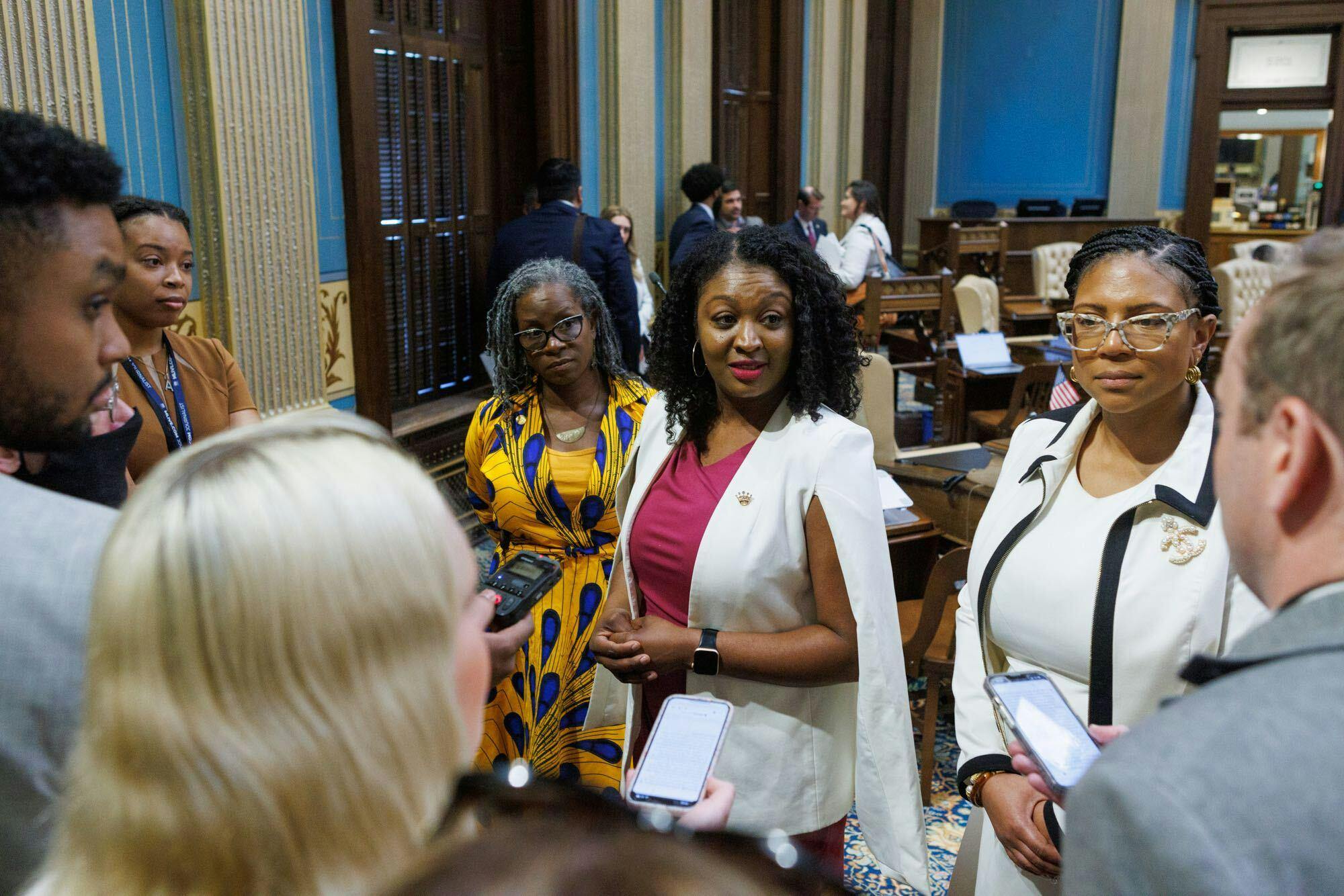The Creating a Respectful and Open World for Natural Hair (CROWN) Act has passed the Michigan House of Representatives in a 100-7 vote on June 8 after being approved by the state Senate, leaving only the signature of Gov. Gretchen Whitmer needed to enact the bill into law.
SB 90, sponsored by Sen. Sarah Anthony, D-Lansing, would prohibit discrimination based on hair, particularly protective or textured hairstyles often worn by Black people. The bill amends the Elliot-Larsen Civil Rights Act to include hairstyles as an aspect of racial identity that cannot be discriminated against in the workplace.
Anthony originally introduced the bill in 2019, but the legislation had been voted down by Republican majorities. Since then, different versions of the CROWN Act have been enacted in nineteen states with California being the first state to adopt it and Minnesota being the most recent besides Michigan.
In a press release, Anthony said the bill's passage will send a message that Michigan is an inclusive state for all people, and she looks forward to Governor Whitmer signing the bill into law.
“Hair discrimination is a lived reality for many Michiganders of Color, particularly in the Black community,” Anthony said. “It can affect our employment, education and wellbeing.”
Anthony’s Chief of Staff Jenita Moore, who spoke on Anthony’s behalf at the time of publication, said Anthony’s motivation for the bill was due to the horrible stories she heard from Black Michiganders, including one incident regarding a then 7-year-old girl whose hair was cut by her teacher in Mount Pleasant in 2021.
Moore added that during previous legislative sessions, there were obstacles for the bill to be taken into consideration. She said Anthony was trying to educate her colleagues on the importance of the CROWN Act from the point of view of a person of color.
“It’s hard for people to always walk in your shoes because they don’t understand that we suffer from issues based on how our hair naturally grows out of our hair,” Moore said.
Moore said with this bill's passage in the legislature, microaggressions towards the Black community will no longer be encouraged. She said the bill would uplift many voices in the Black community who have been treated unfairly because of a physical trait like wearing their natural hair in professional settings.
“Under the Elliott Larsen Civil Rights Act, you will no longer be able to discriminate based on hair or deny employment or educational opportunities because of hair texture or protective styles,” Moore said. “And if you [professional staff] do, now you [residents] have a recourse in law to report it and action can now take place.”
Anthony has also launched a website to provide more information about the CROWN Act and spread light to those who had experienced discrimination. People can also get involved by simply signing up and sharing their story.
Students at Michigan State University also experience similar forms of discrimination or microagressions when people comment on their hair. Journalism and communications junior JaTasia Powers said that when she straightens her hair, she typically receives comments suggesting that she should wear a straighter hair texture more often.
“I feel like people might think those are compliments, but really, they’re just backhanded and they make me feel like my natural hair isn’t good enough,” Powers said. Powers added that she had a hard time accepting her natural hair growing up, and she learned to accept it more because it’s a part of her identity.
Public Policy senior Devin Woodruff said this bill will help Black residents truly express themselves without any discrimination, since hair is a part of Black identity. He also said he feels the Black community is forced to suppress their authentic selves more often than other people.
“I feel like it does a lot of harm just for us, especially as growing up looking at TV shows, or whatever … it’s like that standard of beauty usually isn’t a black or brown person,” Woodruff said. “The Black community in general, I feel like we are probably one of the very few communities that get cut down just based upon (the way) we wear (our hair).”
Woodruff said he also advocated and had written a bill for anti-hair discrimination at MSU when he was a part of student government. Being on campus with mostly white students, Woodruff said this was a mission he was passionate about. He also met with Anthony during this time to get a grasp on the bill’s process.
“I do think that it can definitely help because it lays that groundwork of hopefully showcasing that we truly are in an inclusive state,” Woodruff said. “And when you set it at the state level, it may set a mandate for all the other levels.”
Woodruff later said that he hopes the now signed bill will reassure the Black community to be more empowered of their identity while occupying professional spaces.
“The way we wear our hair is black excellence, it’s joy,” Woodruff said.
Support student media!
Please consider donating to The State News and help fund the future of journalism.
Discussion
Share and discuss “Michigan legislature passes the CROWN Act, advances to governor's desk ” on social media.







